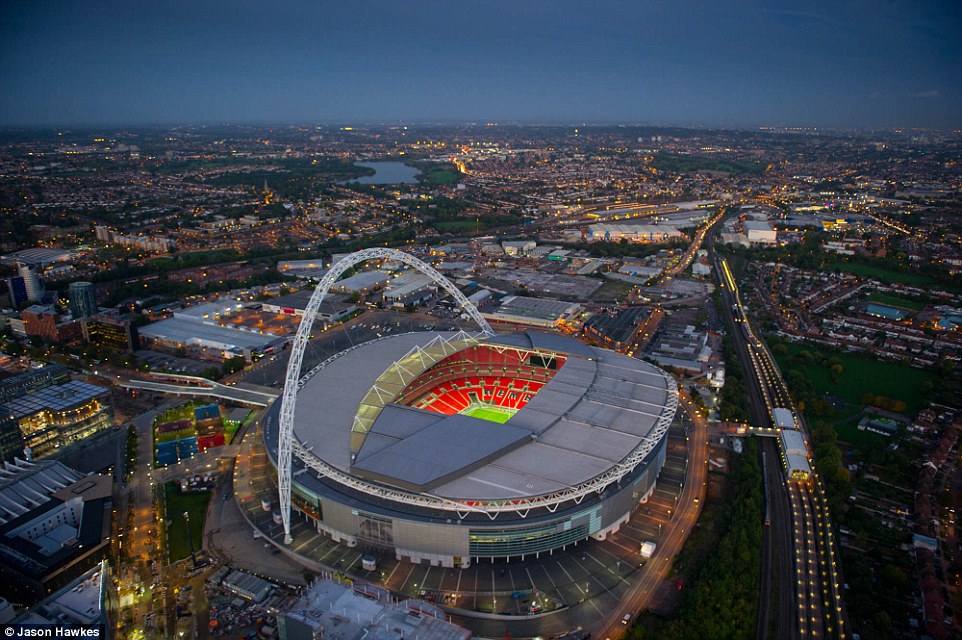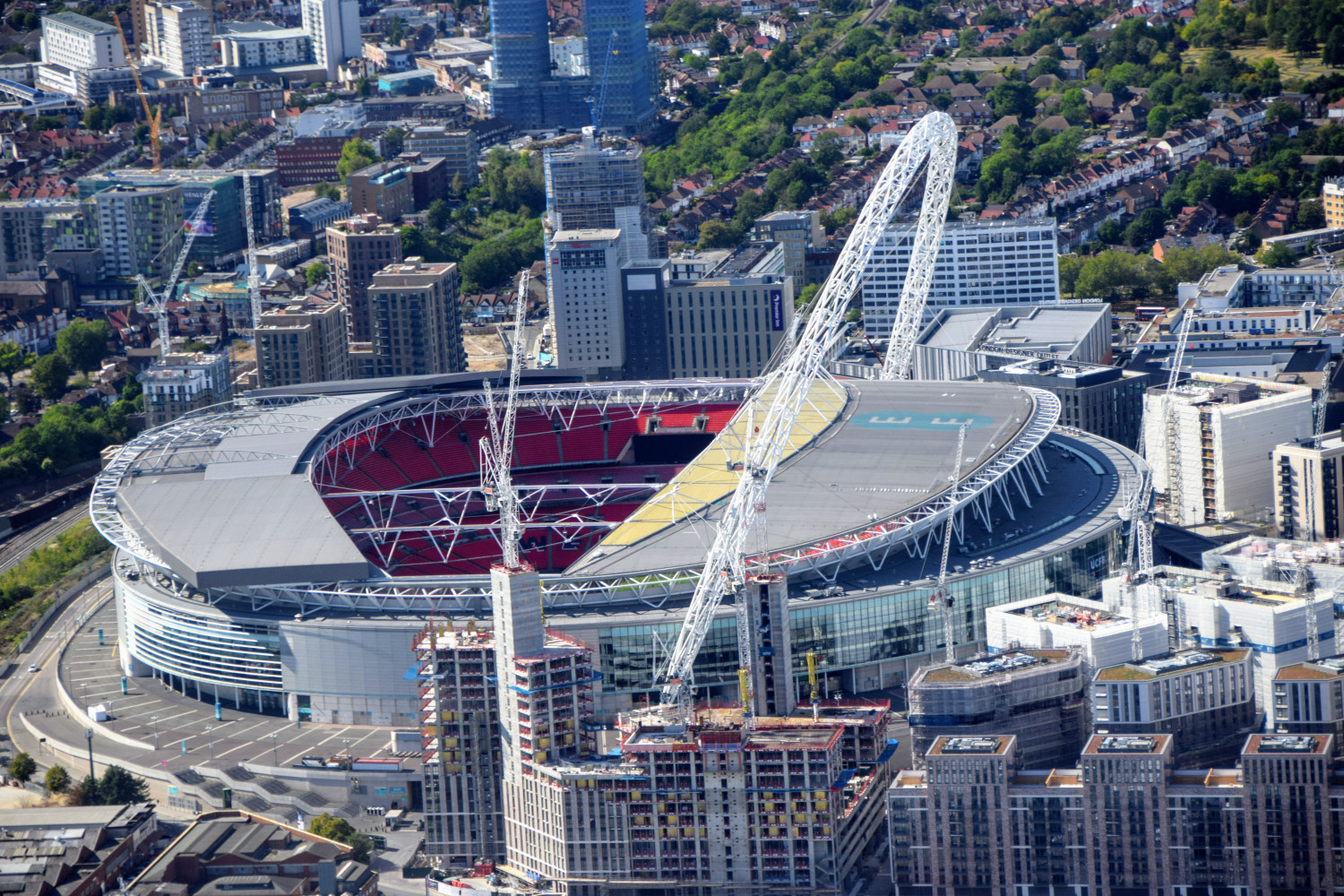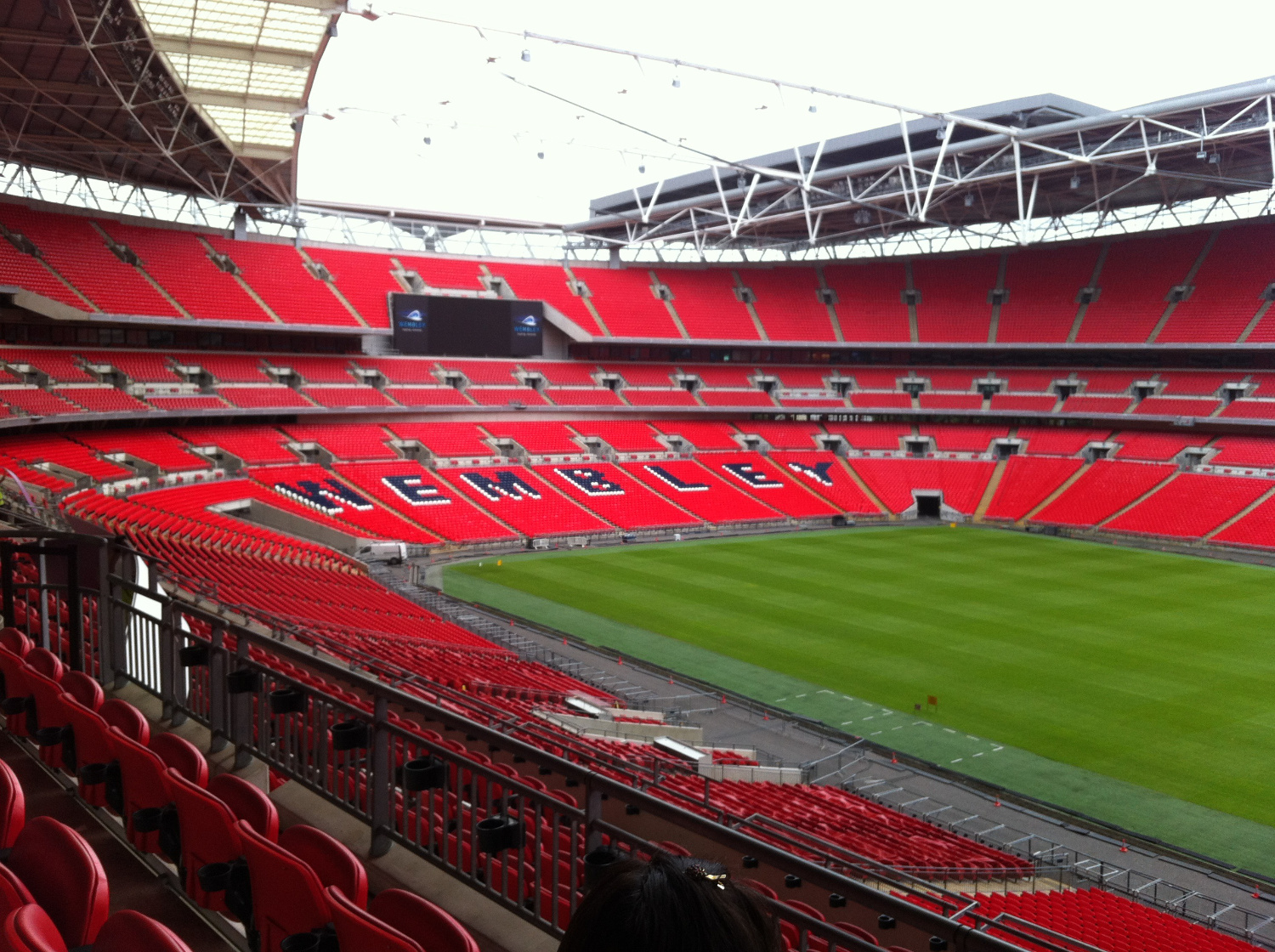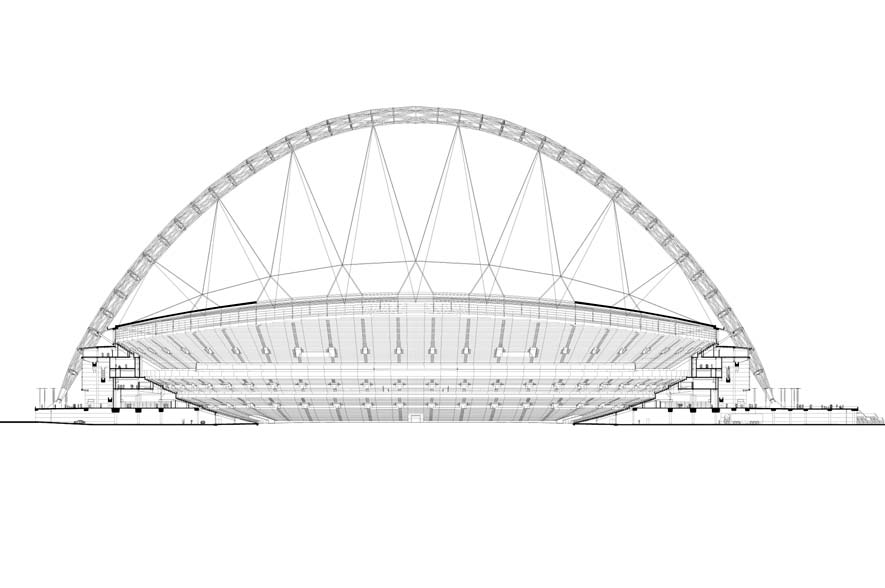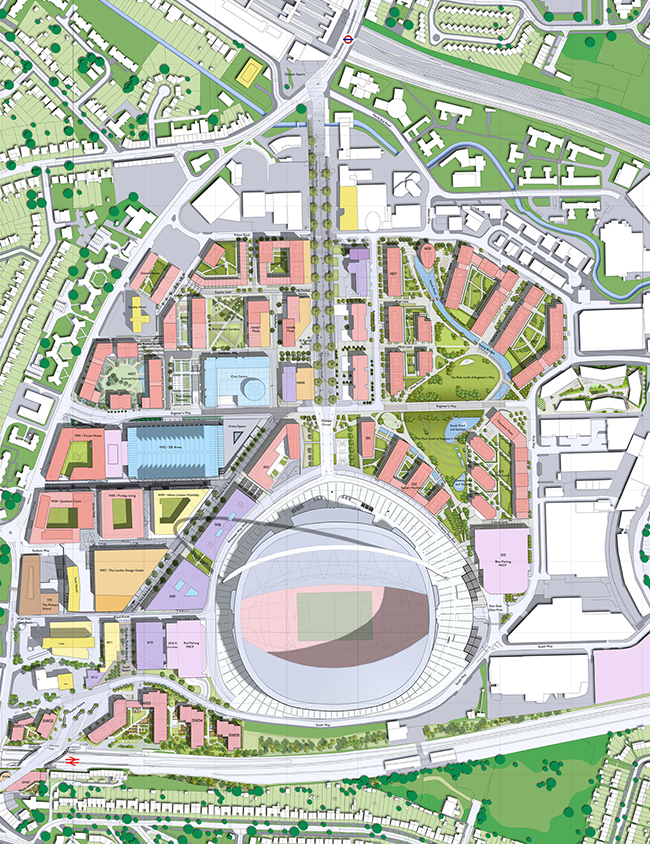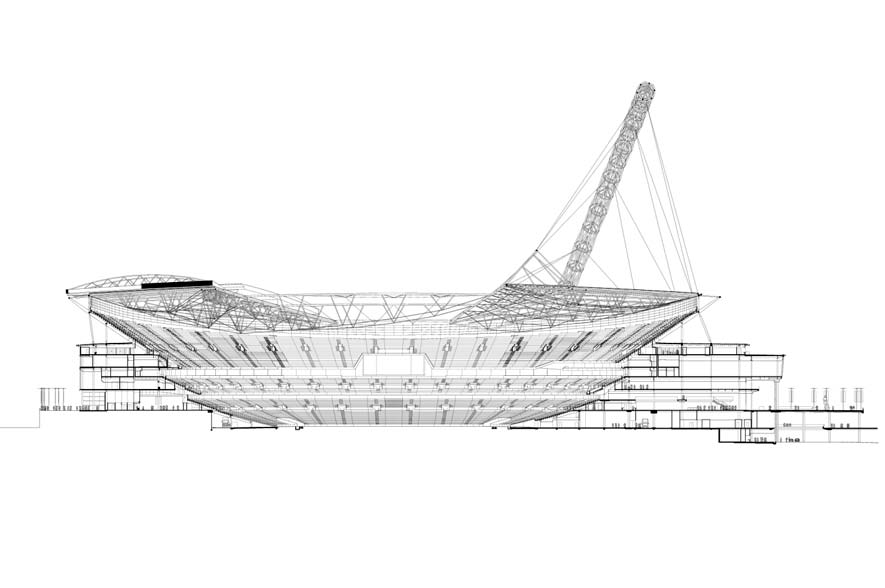Wembley Stadium
| Location | London, GB |
| Client | Lindner AG |
| Design | Foster + Partners |
| Execution time | 2002 – 2006 |
| Construction costs | 21 Mio. EUR |
| Service | project management expansion, LP 5-8 |
| Project leader | Jürgen Steinmeier |
| Projektbeschreibung | Mehr Infos |
New generation of sports stadiums
Originally known as the Empire Stadium, Wembley Stadium was built for the British Empire Exhibition in 1924 and opened for the FA Cup final in 1923. Since then, it has become the most important sports venue in the UK.
As a home game for the British Wembley was the venue of the Olympic Games in England in 1948 and the World Cup Final 1966.
The new Wembley Stadium will be the first in a new generation of sports stadiums, starting with world-class facilities, including ballrooms, apron-gathering rooms, and media coverage facilities.
The design builds on the legacy of the old stadium to provide future generations of sports and music fans with a 21st-century venue. Upon completion, it will form a new home for English football.
A key feature of the new stadium is the partially extendable and retractable roof. In the fully open state, it is possible to reach the sunlight over the entire field. This is an essential element in maintaining the world standard for the quality of the lawn. In bad weather, the roof can be closed within 1 hour to provide protection for all 90,000 seats
The roof is structurally supported by a spectacular 135-meter high arch towering over the stadium, which is an iconic replacement for the old Twin Towers.

